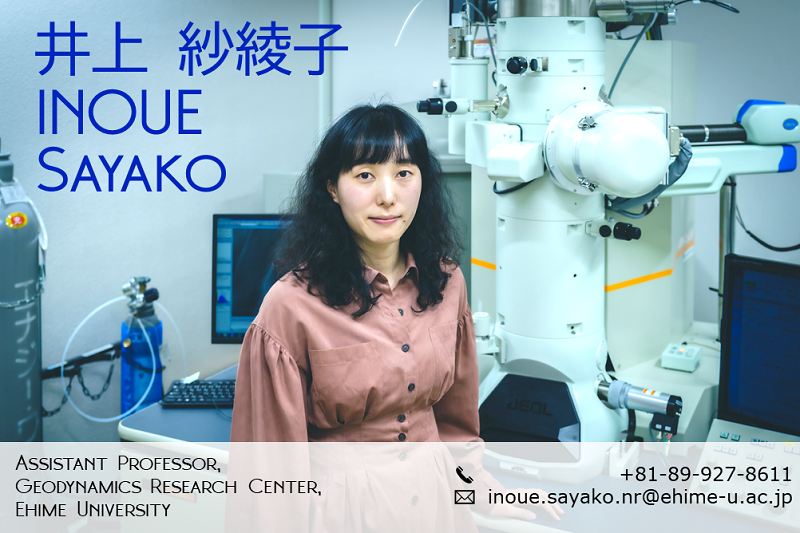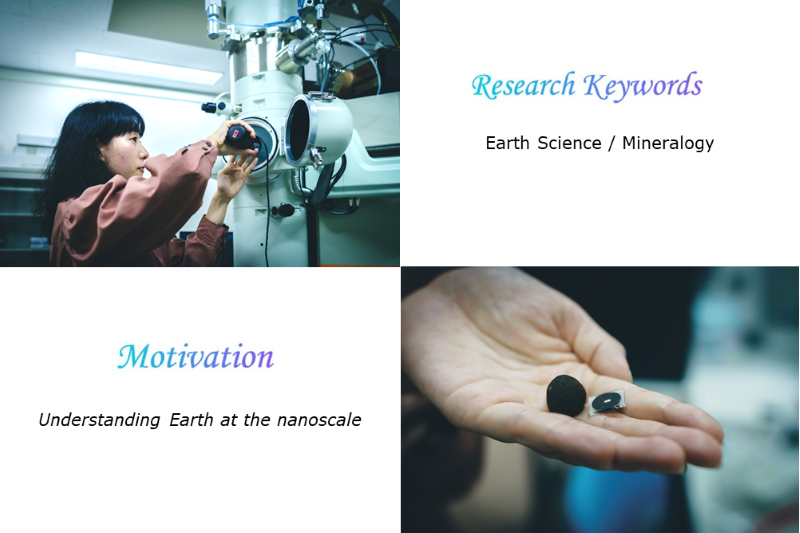

- Inoué S., Yasuhara A., Ai H., Hochella M.H., and Murayama M., "Mn(II) oxidation catalyzed by nanohematite surfaces and manganite/hausmannite core-shell nanowire formation by self-catalytic reaction", Geochimica et Cosmochimica Acta, 258, 79-96 (2019). DOI
- Inoué S. and Kogure T, "High-angle annular dark field scanning transmission electron microscopic (HAADF-STEM) study of Fe-rich 7-Å-14-Å interstratified minerals from a hydrothermal deposit", Clay Minerals, 51(4), 603-613 (2016). DOI
- Inoué S. and Kogure T, "High-Resolution Transmission Electron Microscopy (HRTEM) Study of Stacking Irregularity in Fe-Rich Chlorite From Selected Hydrothermal Ore Deposits", Clays and Clay Minerals, 64, 131-144 (2016). DOI
To view a more comprehensive list of publications, please click on the "researchmap" link below.
Dr. Inoue attended Chiba University, and after graduating from the Department of Earth Sciences in 2011, she went on to study at the Graduate School of Science at the University of Tokyo. Thereafter, she was involved in the Department of Geosciences at Virginia Polytechnic Institute and State University as a postdoctoral researcher from 2016 to 2019. She then took up a position as a project researcher at the University of Tokyo in 2019, before moving to her current post in 2021.
It is acknowledged that when the size of a substance enters the nano-range, it begins to carry new properties which have not been seen before. Nanotechnology utilizes such characteristics, but, the same phenomenon is in fact occurring within minerals in nature as well. Dr. Inoue from Ehime University specializes in the research of such nano-sized minerals. By utilizing high-resolution transmission electron microscopy (HRTEM), she observes nano-sized minerals on the atomic level to unravel their generation process and their roles on Earth. By understanding the generation process of nano-sized minerals, she would like to collaborate with other fields to contribute to the development of sustainable nanotechnology in the future.

 Home
Home




